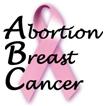Flawed Danish study
Latest Danish Study’s Reported Findings on Abortion-Breast Cancer Link Are Hyperinflated
Coalition on Abortion/Breast Cancer Challenges Danish Researchers to Study the Whole Group, Use Record-Linkage Database
The Coalition on Abortion/Breast Cancer commented on a Danish study led by Christina Braüner entitled, “Induced abortion and breast cancer among parous women: A Danish cohort study.” 1
Braüner’s team studied a very limited segment of the population and misrepresented their findings. They stated they “did not find evidence of an adverse effect of induced abortion on breast cancer risk in parous (childbearing) older women overall....” But they didn’t look at parous women overall. They underestimated the risk of abortion by recruiting only women ages 50-65 and excluding all women already diagnosed with cancer. Pre-menopausal women were excluded, as were childless women, although there was no legitimate justification for it.
Women susceptible to breast cancer because of earlier abortions were either already dead or excluded from participation in the study because they already had cancer. The abortion-breast cancer link has been established in many studies with study subjects age 45 or younger. 2 3 4 5 6 Braüner’s group did not refute them.
Importantly, their abstract reported they had conducted “a follow-up of approximately 12 years” after entry into the study. The average age at abortion in Denmark is 27. [7] Median age at recruitment in the study was age 57. That’s a 30 year difference. The follow-up period actually included a range of between 1 and 50 years following abortion with an average of 30 years. The oldest women who had abortions were 49, but the youngest women were 15. 7
Professor Joel Brind (Baruch College, City University of New York) said, “The important point is that all the women in the study who had had an abortion were the ones who did not get cancer for an average of about 30 years after the abortion. By that time, the study showed that these survivors had no greater risk of breast cancer much later in life than those who did not have any abortions, if the data set is valid, that is. Concluding from this that there is no evidence of an ABC link is a gross exaggeration and irresponsible. It's like saying: ‘Don't worry about breast cancer if you have an abortion,’ that is, just worry for 30 years, and then you can stop worrying! (although your risk is still higher than it would have been had every child you aborted been carried to term instead).”
Abortion was legalized in 1939 in Denmark, not 1973, as the authors claimed. In 1956 it was liberalized, and in 1973 abortion on demand became legal.
The authors unnecessarily relied on self-reports of abortion histories at entrance to the study. Then they speculated whether underreporting of abortions may have occurred.
Karen Malec, president of the Coalition on Abortion/Breast Cancer challenged Braüner and her colleagues. She said, “If these researchers are sincerely interested in determining whether abortion raises risk, why don’t they look at the whole cohort and use data linking records of abortions with records of breast cancer? In a 1997 Danish study, one-fourth of the study subjects (about 350,000 women) were under age 25. They’re 16 years older today. Why not use that database? 8
“Aside from the question of whether abortion leaves the breasts with more places for cancers to start, accepted risk factors for breast cancer include childlessness, small family size, delayed first full term pregnancy and little or no breastfeeding. Abortion deprives women of the protective effect of childbearing.” 6
The Coalition on Abortion/Breast Cancer is an international women’s organization founded to protect the health and save the lives of women by educating and providing information on abortion as a risk factor for breast cancer.
- 1. Braüner C, Overvad K, Tjønneland A & Attermann J. Induced abortion and breast cancer among parous women: A Danish cohort study. Acta Obstetricia et Gynecologica Scandinavica 2013. Available at: http://onlinelibrary.wiley.com/doi/10.1111/aogs.12107/abstract.
- 2. Daling JR, Malone DE, Voigt LF, White E, Weiss NS. Risk of breast cancer among young women: relationship to induced abortion. J Natl Cancer Inst 1994;86:1584-1592. Available at: http://jnci.oxfordjournals.org/content/86/21/1584.
- 3. White E, Malone KE, Weiss NS, Daling JR. Breast cancer among young US women in relation to oral contraceptive use. J Natl Cancer Inst 1994;86:505-514. Available at: http://jnci.oxfordjournals.org/content/86/7/505.abstract.
- 4. Pike MC, et al. Oral contraceptive use and early abortion as risk factors for breast cancer in young women. Br J Cancer 1981;43:72-76. Available at: http://www.ncbi.nlm.nih.gov/pmc/articles/PMC2010485/.
- 5. Howe HL, Senie RT, Bzduch H, Herzfeld P. Early abortion and breast cancer risk among women under age 40. Int J Epidemiol 1989;18:300-304.
- 6. a. b. For a list of 70 epidemiologic studies examining the question whether abortion leaves the breasts with more places for cancers to start, see: http://bcpinstitute.org/FactSheets/BCPI-FactSheet-Epidemiol-studies.pdf.
- 7. Danmarks Statistik. Befolkningens bevægelser 1994 (Vital statistics 1994). Danmarks Statistiks trykkeri, Copenhagen 1996:60-62.
- 8. Melbye M, Wohlfahrt J, Olson JH, Frisch M, Westergaard T, Helweg-Larsen K, Andersen PK. Induced abortion and the risk of breast cancer. N Engl J Med 1997;336:81-85. Available at: http://www.nejm.org/doi/full/10.1056/NEJM199701093360201.



